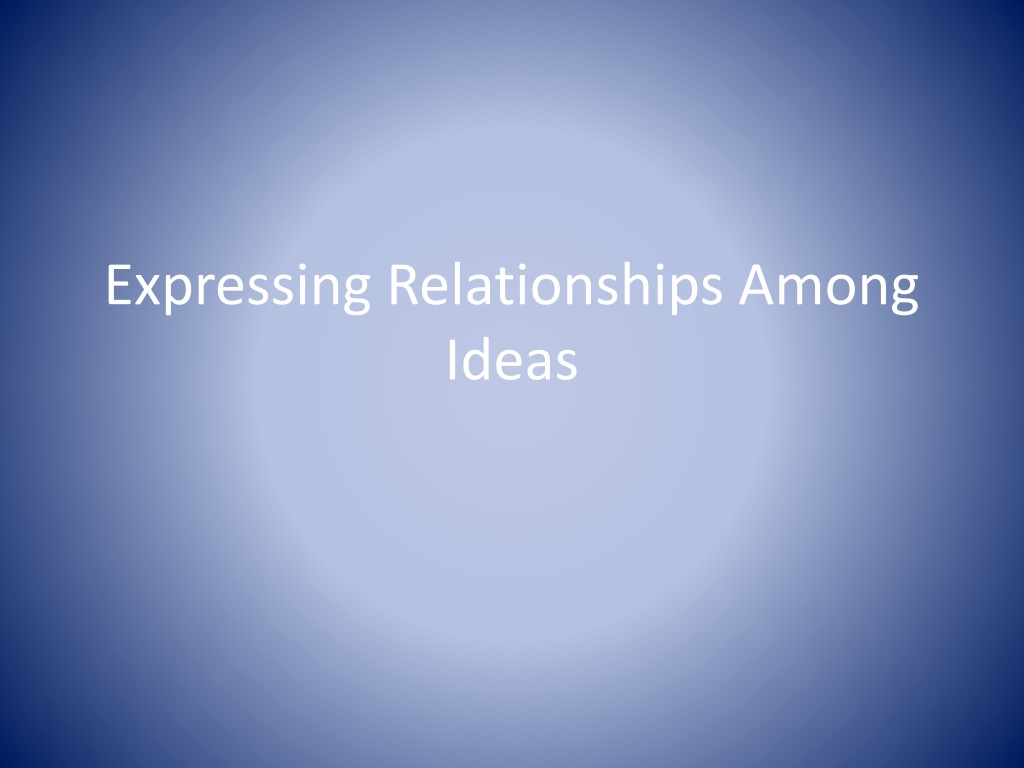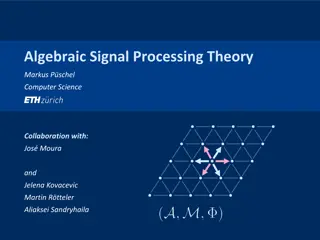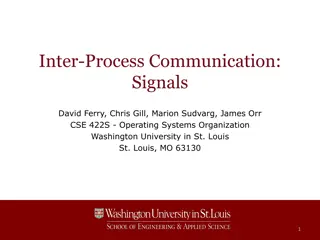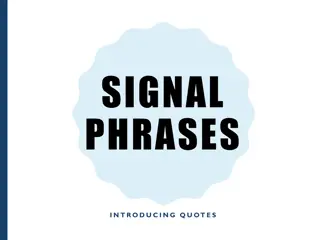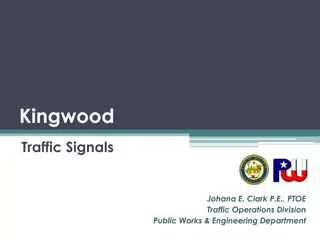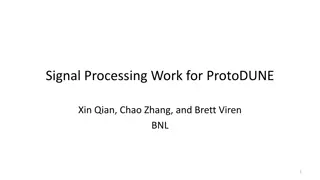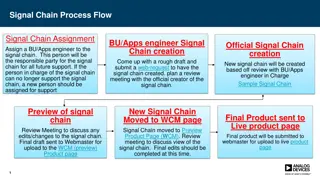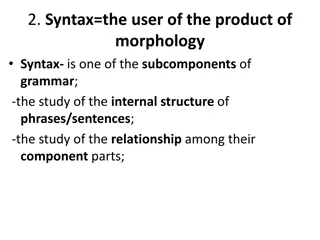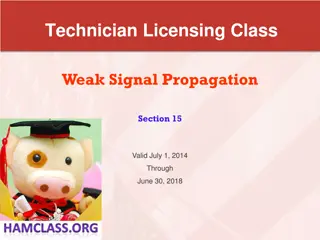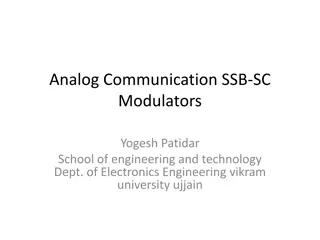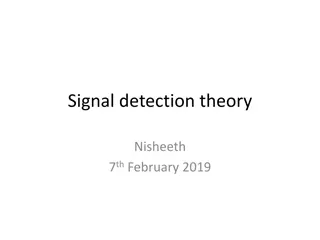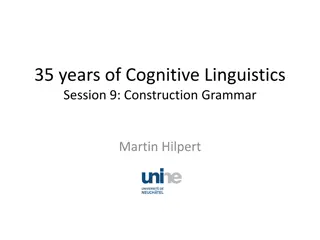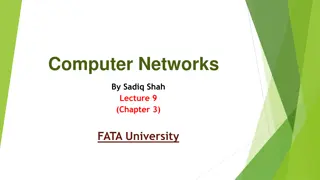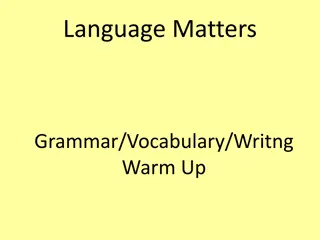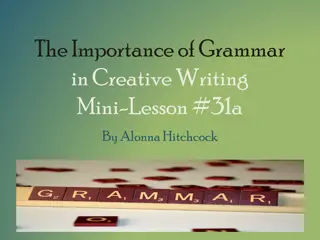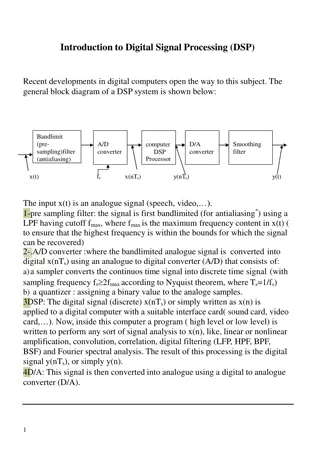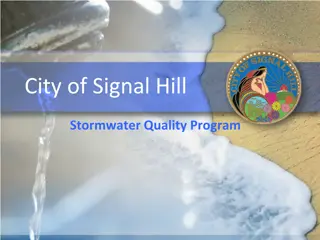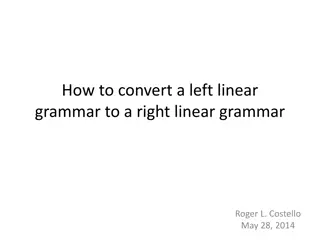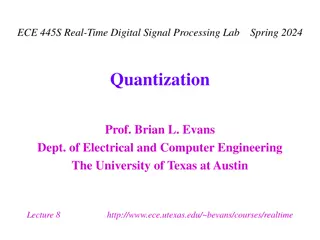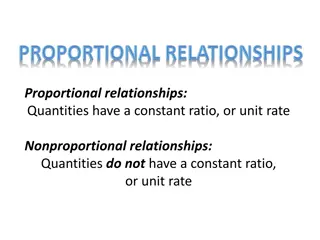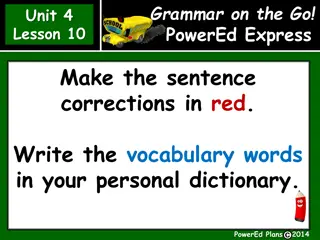Understanding Relationships Among Ideas: Signal Words and Grammar
Discover the importance of signal words and grammar in expressing relationships among ideas through conjunctions, transitions, and prepositions. Learn about different categories of signal words such as addition, cause/result, condition, time, sequence, contrast, and comparison. Understand the nuances of signaling relationships in writing to enhance reading comprehension and writing skills.
Download Presentation

Please find below an Image/Link to download the presentation.
The content on the website is provided AS IS for your information and personal use only. It may not be sold, licensed, or shared on other websites without obtaining consent from the author. Download presentation by click this link. If you encounter any issues during the download, it is possible that the publisher has removed the file from their server.
E N D
Presentation Transcript
Different Categories of Signal Words: Meaning Addition/Listing (and) Cause/Result (so) Condition (if) Time (when) Sequence (first, next) Contrast (but) Comparison (different from/similar to)
THE GRAMMAR OF SIGNALING RELATIONSHIPS AMONG IDEAS CONJUNCTIONS Join clause to clause in one sentence Example Although Massachusetts has abolished the death penalty, the Boston Marathon bomber could be sentenced to death. The Boston Marathon bomber could be sentenced to death, although Massachusetts has abolished the death penalty TRANSITIONS Show the relationship between two different sentences. Can NOT join clause to clause. Example Massachusetts has abolished the death penalty. Nevertheless, the Boston Marathon bomber could be sentenced to death. Massachusetts has abolished the death penalty; nevertheless, the Boston Marathon bomber could be sentenced to death. PREPOSITIONS Join a noun, noun phrase to a clause or other phrase. Can NOT join clause to clause. Example Despite his conviction in a state without capital punishment, the Boston Marathon bomber could be sentenced to death. Despite being convicted in a state without capital punishment, the Boston Marathon bomber could be sentenced to death.
Contrast: Why is it important to distinguish different kinds? Different types of signal words are used depending on the type of contrast. It is important to know this for both reading comprehension and writing. For example: Words used only with Expectation vs. Reality are: TRANSITIONS: Nevertheless/ Nonetheless CONJUNCTIONS: In spite of the fact that/ Despite the fact that/Notwithstanding the fact that PREPOSITIONS: In spite of/ Despite/Notwithstanding Words used only with Emphatic Disagreement: TRANSITION: On the contrary
Contrast, but what kind? CONCESSION WEIGHING/BALANCING CONTRASTING EXPECTATION VS. REALITY EMPHATIC DISAGREEMENT
Contrast: Concession The contrast is between two opposing points of view, where your purpose is to make a concession to the opposing side, and thus make your point of view appear reasoned. EXAMPLE: It is almost certainly true that innocent people have been executed. However, DNA evidence has now made it possible to ensure that only the guilty are ever sentenced to death.
Contrast: Weighing/Balancing The contrast is between two different, but valid, options or points of view. EXAMPLE Inmates sentenced to life imprisonment must be fed and housed for years at taxpayers expense. On the other hand/At the same time/However, legal appeals for inmates convicted of capital crimes can run into the hundreds of thousands of dollars.
Contrast: Different aspects The contrast is between different aspects of things (people, ideas, objects, places, etc.) in the same category. EXAMPLE (Category= states; contrasting ideas on death penalty): Massachusetts does not have the death penalty. On the other hand/In contrast/At the same time/However, New Hampshire does.
Contrast: Expectation vs. Reality The contrast is between what is expected based on a fact (stated in the first sentence or clause) and what is actually true (stated in the second sentence or clause). EXAMPLE Massachusetts has abolished capital punishment. Nevertheless/ Nonetheless/However, the Boston Marathon bomber could receive the death penalty.
Contrast: Emphatic Disagreement The contrast is between what has been said or claimed always stated in the negative and what is actually true. EXAMPLE: The death penalty has not always been prohibited in Massachusetts. On the contrary, it was only abolished in 1984.
